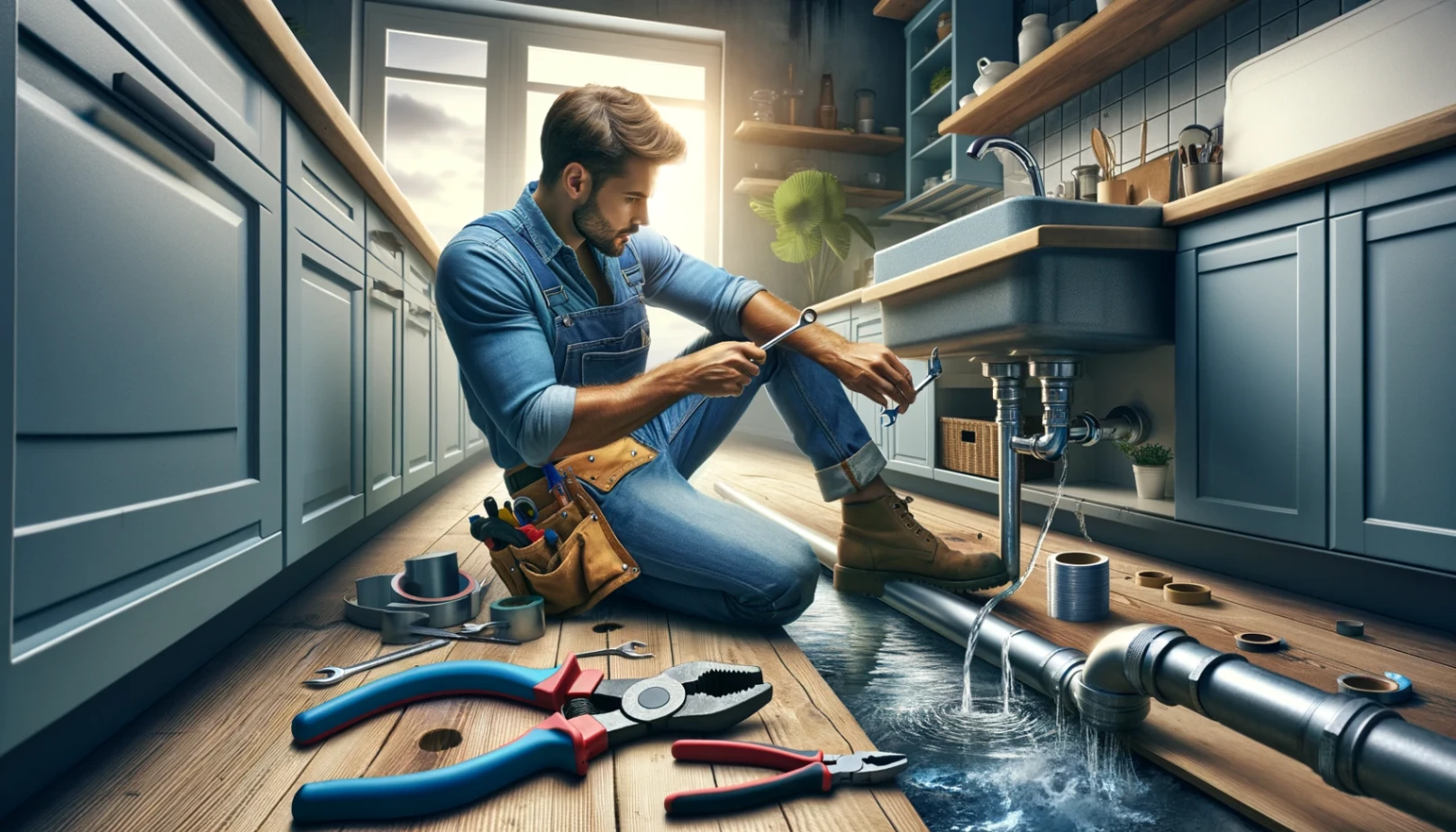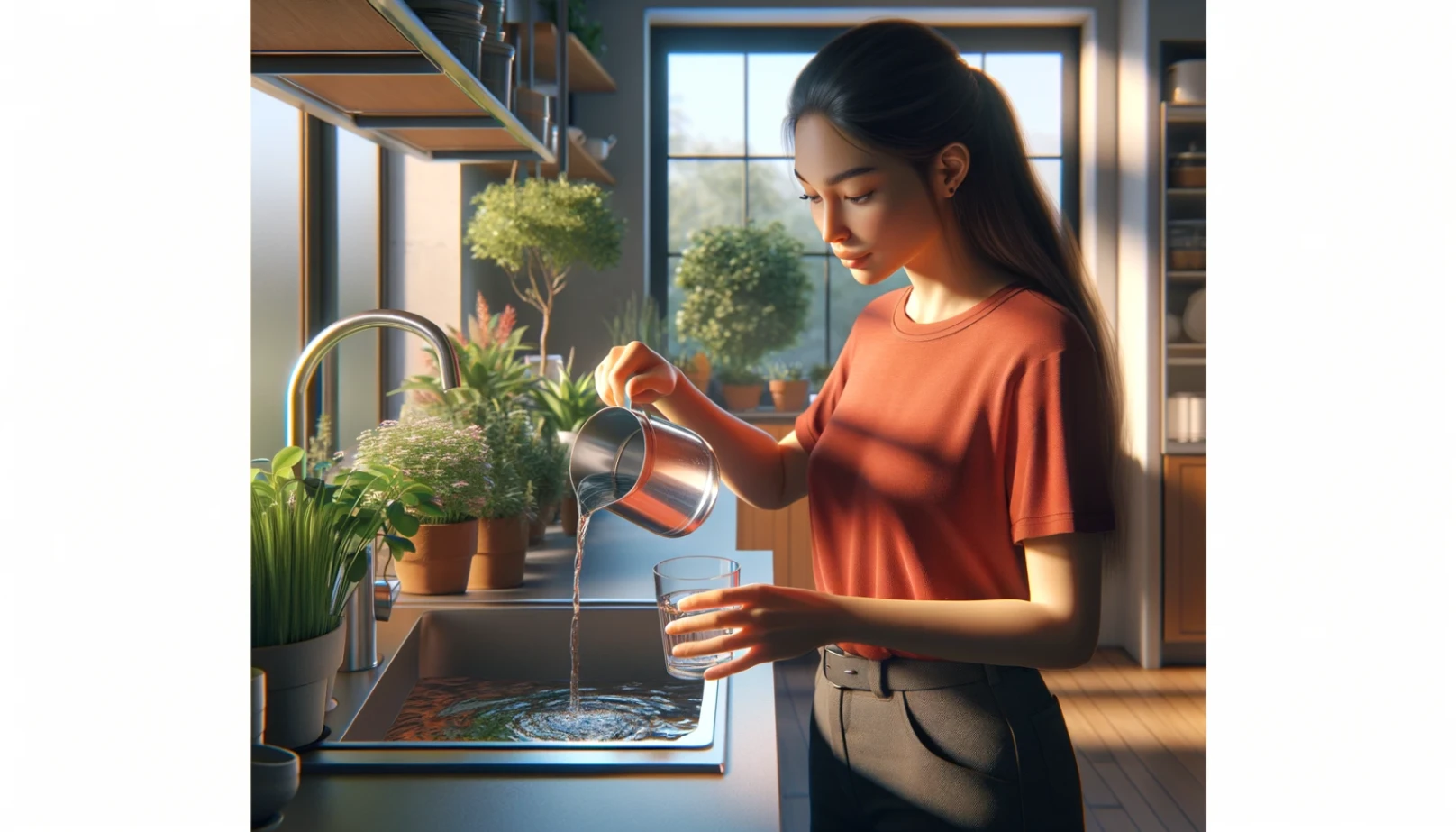In a world where every drop counts, preserving our planet’s most vital resource benefits the environment and can lead to substantial savings in your household budget.
In this article, we’ll guide you through practical and cost-effective measures to reduce water consumption, paving the way for a greener future and a healthier bottom line.
Water-Saving Appliances
Investing in water-saving appliances is a smart choice for reducing water consumption and saving money in your household. These modern fixtures and machines are designed to use less water while maintaining efficiency.
Here’s a list of essential water-saving appliances to consider:
- Low-flow Toilets: Low-flow toilets use as little as 1.6 gallons (6 liters) per flush, offering substantial water savings and lower utility costs.
- High-Efficiency Washing Machines: These machines clean laundry effectively using less water, resulting in water and energy savings.
- Water-Efficient Dishwashers: Designed with advanced spray technology, these dishwashers thoroughly clean dishes with minimal water usage, typically 3-5 gallons (11-19 liters) per load.
- Tankless Water Heaters: Tankless water heaters provide hot water on demand, reducing energy consumption and water waste for cost savings.
- Smart Irrigation Systems: These systems optimize watering schedules based on real-time weather and soil conditions, conserving water and reducing expenses for landscaping.
Fixing Leaks
Promptly addressing leaks is vital since even a small one can lead to substantial water waste and increased bills. Timely repairs conserve resources and save you money in the long run.
Identifying and repairing common household leaks is essential to conserve water and reduce water bills. Here’s a guide to help you detect and fix these leaks effectively:
- Check Faucets and Fixtures: Look for dripping faucets and showerheads. Replace worn-out washers or cartridges to stop leaks.
- Inspect Toilets: Add food coloring to the tank and see if it appears in the bowl without flushing. If so, it’s a sign of a leaking flapper valve.
- Examine Pipes: Inspect exposed pipes for visible leaks or dampness. Use pipe tape or sealant to fix minor pipe leaks.
- Assess Appliances: Examine appliances like dishwashers and washing machines for any signs of water leakage. Replace faulty hoses or connections.
- Monitor Water Meter: Turn off all water sources and check the meter. If it’s still moving, there may be a hidden leak in your plumbing system.
- Check Irrigation Systems: Inspect outdoor irrigation systems for broken or misaligned sprinkler heads. Replace or adjust them to prevent water wastage.
- Investigate Wall Stains: Look for water stains on walls or ceilings, which may indicate pipe leaks. Consult a plumber for concealed leaks.
- Regular Maintenance: Perform routine checks to catch and repair leaks early, saving water and reducing repair costs.
Outdoor Water Conservation
Efficient water use in your garden and lawn promotes healthier plants, reduces water bills, and benefits the environment. Here are some practical tips to help you conserve water outdoors:
- Choose Native Plants: Opt for drought-tolerant native plant species.
- Mulch Garden Beds: Apply a layer of mulch to retain essential soil moisture.
- Soaker Hose Usage: Utilize a soaker hose to water plants directly at the root level.
- Timing Matters: Water early in the morning or late in the evening to minimize evaporation.
- Proper Sprinkler Head Adjustment: Ensure your sprinkler heads are correctly aligned.
- Rainwater Collection: Set up a rain barrel system to collect and use rainwater.
- Consider Drip Irrigation: Consider installing a drip irrigation system for precise and efficient watering.
- Group Plants by Water Needs: Arrange plants with similar water requirements in the same areas.
- Leak Prevention: Regularly inspect hoses and irrigation systems to prevent water wastage.
- Mowing Strategy: Adjust your lawn mower to a higher setting, leaving grass taller to help retain soil moisture.
Behavior Changes
Changing daily behaviors can significantly impact water conservation, benefiting both the environment and your finances. Here are some simple behavior changes you can make to save water:
- Shorter Showers: Aim for 5-10 minutes-long showers, using a timer if needed.
- Turn Off Tap: While brushing your teeth or washing your face, completely shut the tap to prevent unnecessary water flow.
- Full Dishwasher Loads: Wait until you have a full load of dishes before running the dishwasher to maximize water efficiency and minimize the number of cycles.
- Fix Leaks Promptly: Don’t delay addressing any leaks or drips you discover, as even minor leaks can add to substantial water waste.
- Use a Broom: When cleaning driveways and sidewalks, opt for a broom rather than a hose to conserve water.
- Capture Rainwater: Set up containers to collect rainwater and use it for outdoor activities like watering plants and gardens.
- Choose Showers Over Baths: Showers generally use less water than baths, making them a more efficient choice for personal hygiene.
- Efficient Washing Machines: Use a high-efficiency washing machine and ensure you run full loads to save water and energy.
- Limit Lawn Watering: Water your lawn early or late in the evening to reduce water loss through evaporation.
- Educate Others: Share water-saving tips with friends, family, and neighbors to collectively contribute to water conservation efforts.
Reusing Water
Greywater recycling is the process of reusing household wastewater from sinks, showers, and laundry for purposes like landscape irrigation or toilet flushing. It conserves water, lowers bills, and supports sustainability by reducing the demand for fresh water.
Examples of How Greywater Can Be Reused
Reusing greywater offers a sustainable way to make the most of wastewater generated at home. Here are some practical examples of how greywater can be effectively reused:
- Landscape Irrigation: Greywater can water your garden, plants, and landscaping, reducing the need for fresh water and supporting healthy plant growth.
- Toilet Flushing: Treated greywater can be used to flush toilets, conserving potable water that would otherwise be used for this purpose.
- Laundry to Landscape System: Greywater can be redirected from your washing machine to rinse outdoor areas, providing a convenient and efficient way to reuse water.
- Outdoor Cleaning: Use greywater for tasks like washing your car, cleaning outdoor surfaces, or even filling a decorative pond, minimizing the consumption of fresh water.
How Reusing Water Can Contribute to Cost Savings
Reusing water can contribute to cost savings in several ways:
- Lowering water bills through reduced use of potable water.
- Cutting energy costs by reducing water treatment and transportation.
- Easing the strain on septic systems, potentially reducing maintenance expenses.
- Conserving valuable freshwater resources, mitigating future costs.
- Taking advantage of incentives and rebates in some regions for installing greywater recycling systems.
Government Incentives
Government programs and incentives encourage water conservation through:
- Rebate Programs: Offered for buying water-efficient appliances or implementing conservation measures.
- Tax Credits: These are available for investments in water-saving technologies like rainwater harvesting or efficient irrigation.
- Water Conservation Grants: Support projects, especially in agriculture and landscaping.
- Appliance Incentives: Reduce taxes or provide subsidies for water-efficient appliances.
- Free Water Audits: Help identify and implement water-saving measures.
- Tiered Water Pricing: Charges more for higher usage to encourage efficiency.
- Efficiency Standards: Ensure water-efficient products in the market.
Summing It Up
In conclusion, water conservation offers both environmental and financial rewards. Small habit changes, investing in efficient appliances, and creative water reuse contribute to a sustainable lifestyle.
Every drop saved today ensures a greener, more economical future for all.




